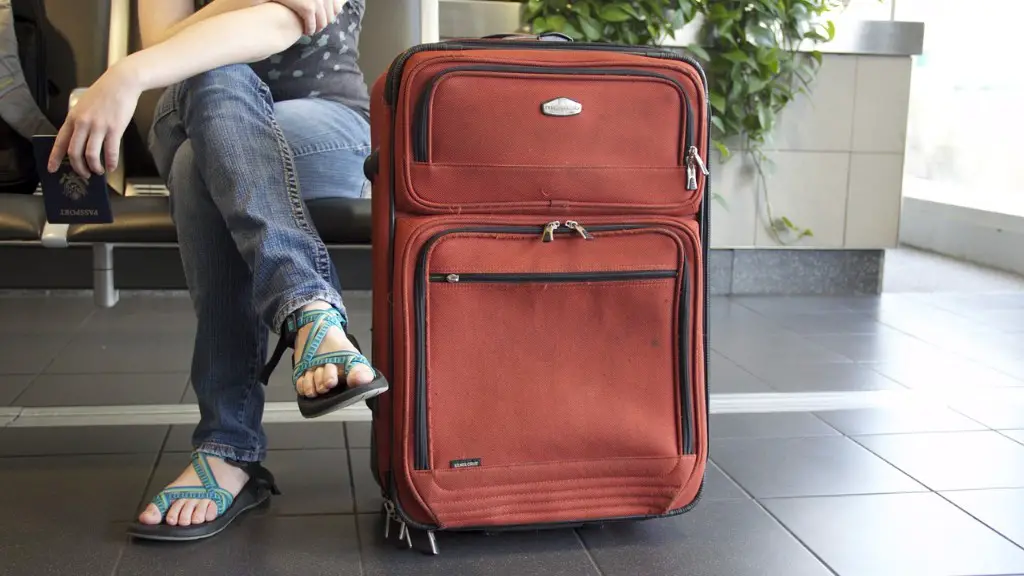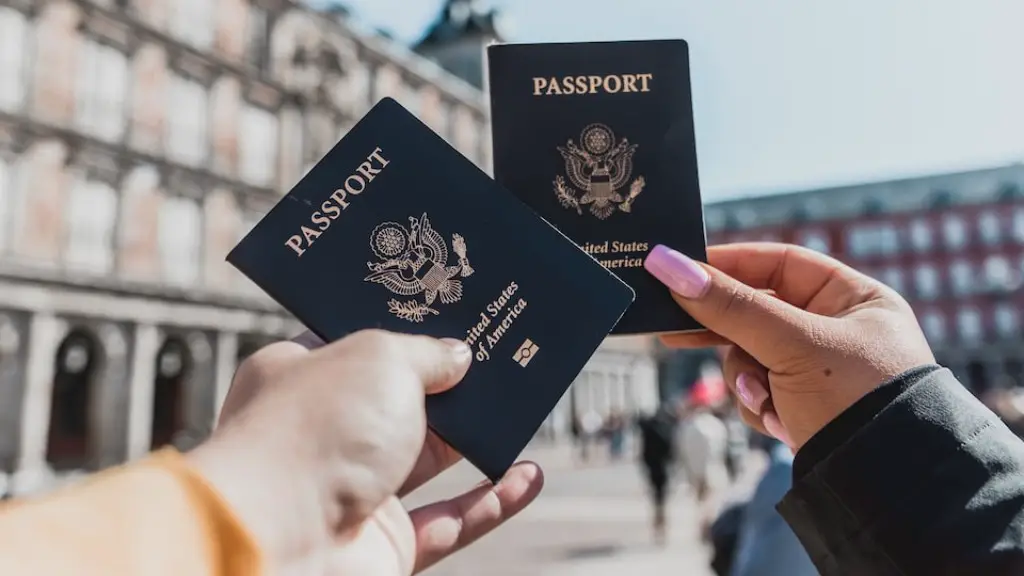When considering how much travel insurance to purchase, there are a few things to take into account. First, you’ll want to consider the total cost of your trip and how much coverage you feel comfortable with. Next, think about what type of activities you’ll be doing on your trip. If you plan on doing any risky activities, you may want to purchase more insurance. Finally, check with your credit card company to see if they offer any travel insurance coverage.
There is no definitive answer, and it really depends on each individual situation. Some factors to consider include the cost of your trip, your age and health, the activities you’ll be doing, and where you’ll be traveling. You may want to consider a higher coverage limit if you’re traveling to a country with high medical costs or if you’re doing a lot of activities that could result in an injury.
What is the recommended amount of travel insurance?
When considering travel insurance, it is important to factor in the cost of your trip. CoverTrip advises its customers that travel insurance plans typically cost between 4 to 10% of the total trip cost. So, if you are planning a trip that costs $5,000, your insurance could be anywhere from $200 to $500.
When deciding how much emergency medical travel insurance to purchase, travelers should consider both the medical coverage and the medical evacuation coverage. For international travel, Squaremouth recommends a minimum of $50,000 in emergency medical coverage and at least $100,000 in medical evacuation coverage.
Is $100 000 medical insurance enough
It is no secret that the cost of healthcare in the United States is incredibly high. Even with health insurance, people can easily exceed a $50,000 policy maximum for anything serious that requires a few days stay in the hospital. $100,000 is a more comfortable amount to have as a policy maximum, considering the high cost of healthcare in the US.
If you’re feeling uncomfortable about traveling due to COVID-19 cases or quarantine recommendations, most policies will reimburse you 50% to 75% of your trip costs. However, it’s always best to check with your specific policy to see what coverage you have.
Is it cheaper to buy travel insurance separately?
If you are someone who likes to travel often, an annual policy may be more cost effective for you in the long run. This is because you would be paying for the policy per trip if you bought a single policy each time you travelled.
There are a few things to consider when deciding when to buy travel insurance. The first is whether you need to cancel your trip. If you need to cancel your trip, you should buy travel insurance as soon as possible. This way, you can be sure you’re covered in case you need to cancel your trip for any reason.
The second thing to consider is whether you need medical coverage. If you’re going to a country with high medical costs, or if you have a pre-existing medical condition, you should buy travel insurance as soon as you book your trip. This way, you’ll be covered in case you need medical care while you’re on vacation.
The third thing to consider is whether you need coverage for lost or stolen belongings. If you’re going to be traveling with expensive items, or if you’re going to a country where theft is common, you should buy travel insurance as soon as you book your trip. This way, you’ll be covered in case your belongings are lost or stolen while you’re on vacation.
In general, you should buy travel insurance as soon as you book your trip. This way, you can be sure you’re covered in case you need to cancel your trip or if something happens while you’re
How much medical coverage do I need for international travel?
When traveling, it is always important to be prepared for the unexpected. One way to do this is to purchase medical evacuation and repatriation coverage. This coverage can help to cover the high costs associated with medical emergencies and transport back to your home country. Typically, we recommend that travelers and students purchase coverage of $50,000 – $100,000. However, if you are traveling to remote locations, you should consider coverage closer to $250,000 or more. This will ensure that you are fully prepared for any unforeseen circumstances.
A family floater health insurance plan is a comprehensive and affordable health insurance plan that covers all the members of a family. It is a cost-effective way to secure the health of your family. The sum assured under a family floater health insurance plan is usually higher than an individual health insurance plan, which makes it ideal to cover the rising costs of medicines and treatments.
Does travel insurance cover all medical bills
It’s important to make sure that your travel insurance policy includes medical expenses coverage for the trip you’re taking. Coverage levels and restrictions can vary between insurers, so be sure to check before you buy.
If you are ill and need medical assistance, you should contact the nearest US Embassy or Consulate. They can provide you with a list of local healthcare providers and medical facilities. If your illness is serious, consular officers can help you find medical assistance and, if you desire, inform your family and/or friends.
Do I need travel insurance if I have private health insurance?
However, there are some key things to keep in mind:
-Your private health insurance may not cover you for everything. For example, it may not cover you for emergency evacuation or repatriation.
-Your private health insurance may have limits on how much it will pay for medical treatment overseas.
-Your private health insurance may not cover you for pre-existing conditions.
Therefore, even if you have private health insurance, it is still a good idea to take out travel insurance when you are going overseas.
The cost of a $1,000,000 life insurance policy for a 10-year term is $3205 per month on average. If you prefer a 20-year plan, you’ll pay an average monthly premium of $4665.
What is not covered by travel insurance
If you’re planning to travel, it’s important to be aware that trip cancellations and interruptions due to known, foreseeable, or expected events, epidemics, or fear of travel are generally not covered by travel insurance. This means that if something happens that causes you to cancel or interrupt your trip, you may not be reimbursed for your losses. So, before you purchase travel insurance, be sure to read the fine print and understand what is and isn’t covered.
Most comprehensive travel insurance policies exclude pre-existing physical and mental health conditions. Some insurers will cover you if you pay extra. Commonly excluded are bone and joint conditions.
Is trip protection worth it?
Though you may pay 5 to 10 percent of your trip cost for travel insurance, travel insurance is often worth the investment for its potential to help reimburse you for hundreds of thousands of dollars of covered travel-related expenses like emergency evacuation, medical bills, and costs related to trip cancellation and interruption.
We’ve reviewed dozens of medical coverage options and here are our top picks for the best medical coverage for travel. Whether you’re looking for comprehensive coverage or just a basic plan, we’ve got you covered.
Am I covered if my flight is Cancelled
If your flight is cancelled, the airline is legally required to provide you with a full refund for the flight. Additionally, they must also provide a full refund for any other flights from the airline that you will not be able to use as part of the same booking. This includes onward or return flights if you are partway through a journey, as well as a flight back to the airport you originally departed from.
If your flight is delayed more than 12 hours, you may even qualify for trip cancellation coverage, depending on your plan.
Warp Up
This is a difficult question to answer as it depends on many factors, such as where you are traveling, what you plan to do while you are there, and your personal health and safety concerns. However, a good rule of thumb is to purchase travel insurance that will cover at least the cost of your medical expenses and repatriation.
There is no one definitive answer to this question. Every individual’s travel insurance needs will be different, depending on factors such as where you are traveling, the activities you will be participating in, and your overall health and safety risk profile. Some people may only need the bare minimum of travel insurance coverage, while others may require more comprehensive protection. Ultimately, it is up to each individual to assess their own needs and determine the right amount of travel insurance for their trip.





